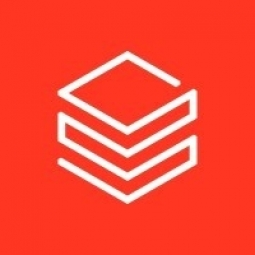Technology Category
- Analytics & Modeling - Machine Learning
- Analytics & Modeling - Predictive Analytics
Applicable Industries
- Education
- Equipment & Machinery
Applicable Functions
- Product Research & Development
- Quality Assurance
Use Cases
- Fraud Detection
- Inventory Management
Services
- Cloud Planning, Design & Implementation Services
- Data Science Services
About The Customer
Block is a global technology company that champions accessible financial services, prioritizing economic empowerment. Its subsidiaries, including Square, Cash App, Spiral, TBD, and TIDAL, are committed to expanding economic access. By utilizing machine learning (ML) and artificial intelligence (AI), Block proactively identifies and prevents fraud, ensuring secure customer transactions. Moreover, Block enhances user experiences by delivering personalized recommendations, utilizing identity resolution to gain a comprehensive understanding of customer activities across their diverse services. Internally, Block optimizes operations through automation and predictive analytics, driving efficiency in financial service delivery.
The Challenge
Block, a global technology company, was facing challenges in managing a large volume of data crucial for graph-related use cases. This included handling graph databases, leveraging various machine learning tools, and optimizing performance for petabytes of data. Operational inefficiencies and scalability concerns arose due to the fragmented nature of data across diverse business units. The cumbersome data transfers between these systems, combined with the siloed nature of data governance policies, posed auditing and policy enforcement challenges. Block was also in need of a proper implementation and uniformity of data governance policies to ensure compliance with privacy laws like GDPR and CCPA for both customers and internal teams.
The Solution
To overcome these challenges, Block chose to migrate to Spark and selected Databricks as their lakehouse platform. This allowed them to consolidate all data and AI workloads onto a unified platform, empowering data scientists, data engineers, and AI practitioners to leverage data efficiently from a centralized location. Block adopted Unity Catalog for centralized governance, which provided a unified view of their data estate across different business units and simplified access permission management. It also offered the flexibility to distribute cost attribution among teams by allowing the assignment of storage locations per team for their catalogs and schemas. Block also plans to leverage data lineage to comply with right-to-forget scenarios, ensuring adherence to data privacy regulations.
Operational Impact
Quantitative Benefit

Case Study missing?
Start adding your own!
Register with your work email and create a new case study profile for your business.
Related Case Studies.

Case Study
Smart Water Filtration Systems
Before working with Ayla Networks, Ozner was already using cloud connectivity to identify and solve water-filtration system malfunctions as well as to monitor filter cartridges for replacements.But, in June 2015, Ozner executives talked with Ayla about how the company might further improve its water systems with IoT technology. They liked what they heard from Ayla, but the executives needed to be sure that Ayla’s Agile IoT Platform provided the security and reliability Ozner required.

Case Study
IoT enabled Fleet Management with MindSphere
In view of growing competition, Gämmerler had a strong need to remain competitive via process optimization, reliability and gentle handling of printed products, even at highest press speeds. In addition, a digitalization initiative also included developing a key differentiation via data-driven services offers.

Case Study
Predictive Maintenance for Industrial Chillers
For global leaders in the industrial chiller manufacturing, reliability of the entire production process is of the utmost importance. Chillers are refrigeration systems that produce ice water to provide cooling for a process or industrial application. One of those leaders sought a way to respond to asset performance issues, even before they occur. The intelligence to guarantee maximum reliability of cooling devices is embedded (pre-alarming). A pre-alarming phase means that the cooling device still works, but symptoms may appear, telling manufacturers that a failure is likely to occur in the near future. Chillers who are not internet connected at that moment, provide little insight in this pre-alarming phase.

Case Study
Premium Appliance Producer Innovates with Internet of Everything
Sub-Zero faced the largest product launch in the company’s history:It wanted to launch 60 new products as scheduled while simultaneously opening a new “greenfield” production facility, yet still adhering to stringent quality requirements and manage issues from new supply-chain partners. A the same time, it wanted to increase staff productivity time and collaboration while reducing travel and costs.

Case Study
Integration of PLC with IoT for Bosch Rexroth
The application arises from the need to monitor and anticipate the problems of one or more machines managed by a PLC. These problems, often resulting from the accumulation over time of small discrepancies, require, when they occur, ex post technical operations maintenance.

Case Study
Data Gathering Solution for Joy Global
Joy Global's existing business processes required customers to work through an unstable legacy system to collect mass volumes of data. With inadequate processes and tools, field level analytics were not sufficient to properly inform business decisions.







